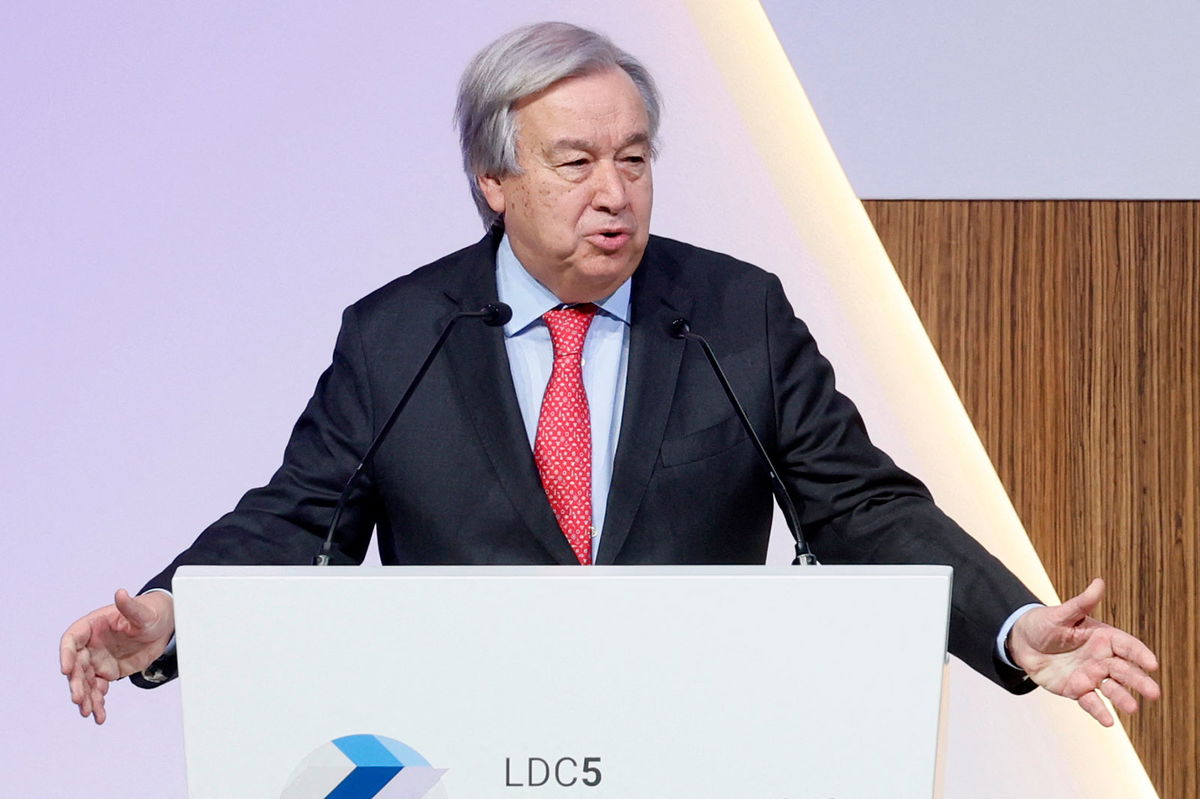Gender equality will take 300 years to achieve, UN chief warns

Gender equality is "300 years away
By Tara Subramaniam, CNN
Progress toward gender equality is “vanishing before our eyes,” United Nations Secretary General António Guterres told the Commission on the Status of Women on Monday.
Speaking to the key UN women’s rights group ahead of International Women’s Day on March 8, Guterres said gender equality is “300 years away” according to the latest estimates from UN Women, the UN organization dedicated to gender equality and the empowerment of women.
Guterres cited high rates of maternal mortality, girls being forced into early marriage, and girls being kidnapped and assaulted for attending school as evidence that hope of achieving gender equality “is growing more distant.”
In his speech, Guterres did not mention Iran, which was expelled from the 45-member commission in December over protests following the death of Mahsa Amini in the custody of the country’s so-called “morality police.”
“Women’s rights are being abused, threatened, and violated around the world,” Guterres said, naming a few countries in particular, including Afghanistan, where he said “women and girls have been erased from public life.”
On Monday, young Afghan women gathered outside Kabul University to protest the ruling Taliban’s ban on female education, a restriction which a new UN report says may amount to “a crime against humanity.”
The report presented to the Human Rights Council in Geneva on Monday also noted the rise in forced and child marriages, the ban excluding women from other public spaces like parks and gyms, and other restrictions limiting women’s ability to work and travel independently in Afghanistan.
Guterres said the deputy secretary-general and the executive director of UN Women recently visited Afghanistan and conveyed to the Taliban authorities that “we will never give up fighting for” women and girls.
“Crisis and conflict affect women and girls first and worst,” Guterres said, including the war in Ukraine as an example. Last year, the UN called for an investigation into reports of rape and sexual violence against Ukrainian women and children following Russia’s invasion.
Guterres also said that “in many places, women’s sexual and reproductive rights are being rolled back,” though he didn’t specify where.
Last June, the United States Supreme Court overturned Roe v. Wade, leaving the right to abortion up to individual states. The year before, a ban on abortions due to fetal defects took effect in Poland — essentially ending almost all abortions in the country.
To achieve gender equality, Guterres called for “collective” and “urgent” action, from increasing education, income and employment for women and girls, especially in developing nations in the Global South, to promoting the participation of women and girls in science and technology.
“Centuries of patriarchy, discrimination and harmful stereotypes have created a huge gender gap in science and technology,” Guterres said. “Let’s be clear: global frameworks are not working for the world’s women and girls. They need to change.”
The-CNN-Wire
™ & © 2023 Cable News Network, Inc., a Warner Bros. Discovery Company. All rights reserved.